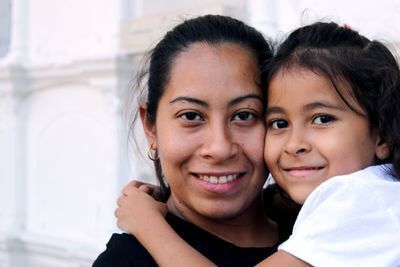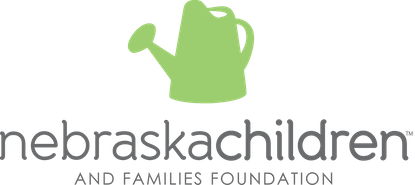Protective Factors
The protective factors are conditions that buffer children against the effects of Adverse Childhood Experiences (ACEs) when they’re present within families and communities. By working within communities to help families build on their own Protective Factors, we can prevent ACEs, as well as improve resilience in families to avoid involvement with the child welfare system.

Developing a close bond between parent and child is a powerful buffer against stresses that may come along in life. Talking to, smiling at, cuddling with and playing with babies creates long-term resilience.
Knowledge of Parenting and Child Development
Parents who understand the usual course of child development are more likely to be able to provide their children with respectful communication, consistent rules and expectations, developmentally appropriate limits, and opportunities that promote independence. But no parent can be an expert on all aspects of infant, child, and teenage development or on the most effective ways to support a child at each stage. When parents are not aware of normal developmental milestones, interpret their child’s behaviors in a negative way, or do not know how to respond to and effectively manage a child’s behavior, they can become frustrated and may resort to harsh discipline.

When parents have the internal resources to handle life stresses appropriately, they're more likely to make better parenting choices, keep their tempers and provide positive reinforcement that helps children thrive.
Parental Resilience
Parents who can cope with the stresses of everyday life, as well as an occasional crisis, have resilience - the flexibility and inner strength to bounce back when things are not going well. Parents with resilience also know how to seek help in times of trouble. Their ability to deal with life’s ups and downs serves as a model of coping behavior for their children. This can help children learn critical self-regulation and problem-solving skills.
Social Connections
Parents with a network of emotionally supportive friends, family, and neighbors often find that it is easier to care for their children and themselves. Most parents need people they can call on once in a while when they need a sympathetic listener, advice, or concrete support such as transportation or occasional child care. In other words, a positive community environment—and the parent’s ability to participate effectively in his or her community—is an important protective factor. On the other hand, research has shown that parents who are isolated and have few social connections are at higher risk for child abuse and neglect.
Concrete Supports
Families whose basic needs (for food, clothing, housing, and transportation) are met have more time and energy to devote to their children’s safety and well-being. When parents do not have steady financial resources, lack a stable living situation, lack health insurance, or face a family crisis (such as a natural disaster or the incarceration of a parent), their ability to support their children’s healthy development may be at risk. Families whose economic opportunities are more limited may need assistance connecting to social service supports such as housing, alcohol and drug treatment, domestic violence counseling, or public benefits.

When children develop the social-emotional skills needed to deal with everyday life stresses, they are more likely to avoid high-risk behavior, succeed in school and make healthy life choices.
Social and Emotional Competence of Children
Children’s emerging ability to form bonds and interact positively with others, self-regulate their emotions and behavior, communicate their feelings, and solve problems effectively has a positive impact on their relationships with their family, other adults, and peers. Parents and caregivers grow more responsive to children’s needs—and less likely to feel stressed or frustrated—as children learn to tell parents what they need and how parental actions make them feel, rather than “acting out” difficult feelings.

